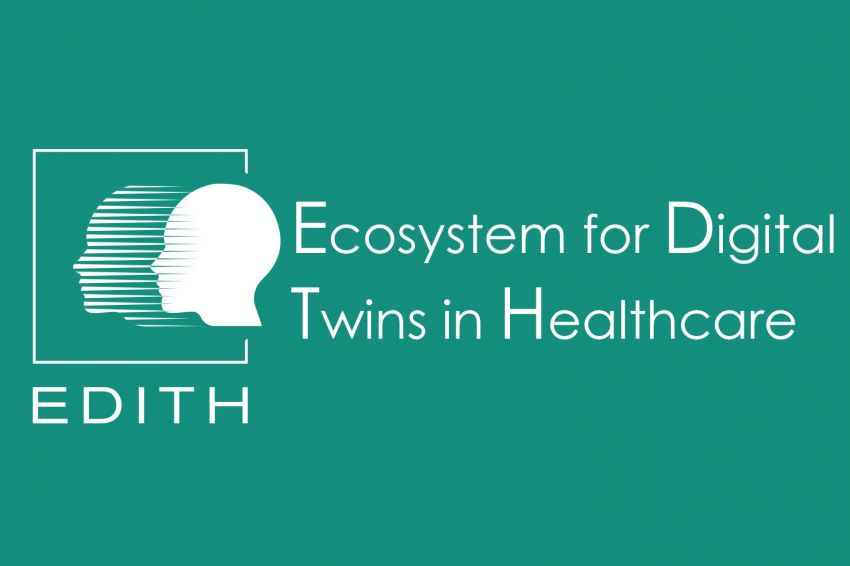
The creation of Digital Twins for the development of personalized treatments is the cornerstone of a new research project in which FORTH participates
The Foundation for Research and Technology-Hellas and the Unit of Medical Technology and Intelligent Information Systems, coordinated by Professor Dimitrios Fotiadis, participates in the project EDITH (Ecosystem for Digital Twins in Healthcare) targeting the creation of an ecosystem for "Digital Twins" in healthcare, funded with 5 million euros by the European Commission (DG CNECT) in the framework of the Digital Europe program.
A patient "Digital Twin" is a virtual representation of body systems or functions (from organs to the whole body), which, in combination with predictive computational models, can be used as a clinical decision support system or as a tool for the development of medical products. The aim of EDITH project is to create and foster an ecosystem for "Digital Twin" in healthcare in Europe, and prepare a strategic roadmap and action plan for its wider development, integration and adoption. To achieve this objective, computational models simulating specific organ functions will be created and validated using patient data, and the functionality and effectiveness of the Digital Twins will be demonstrated with key users from the field of research, industry and the medical community.
Liesbet Geris, Professor at the University of Liège and KU Leuven in Belgium, CEO of the VPH Institute and coordinator of the EDITH project, in a recent interview mentioned that the EDITH ecosystem is an unprecedented opportunity allowing for the realization of an integrated Digital Twin for personalized healthcare.
EDITH is driven by a consortium of nineteen partners, including the following internationally renowned research institutes, companies and clinical centers: from Greece, Biomedical Research Institute of the Foundation for Research and Technology-Hellas and the Athena Research and Innovation Centre; from Belgium, the Institute of Virtual Human Physiology, the University of Liège, the Flemish Institute of Technological Research VITO and the company DIGITALEUROPE; from Italy the University of Bologna, the company Lynkeus and the Pi School Institute; from Germany the Forschungszentrum Jülich, the Aachen University Hospital, Empirica and the Heidelberg Institute for Theoretical Studies, the AGH University of Science and Technology (Poland), the University of Amsterdam (Netherlands), the French Institute for Computer and Automation Research and Science, the Barcelona Supercomputing Centre (Spain), the Swiss Federal Institute of Technology in Lausanne (Switzerland) and Queen Mary University of London (England).






